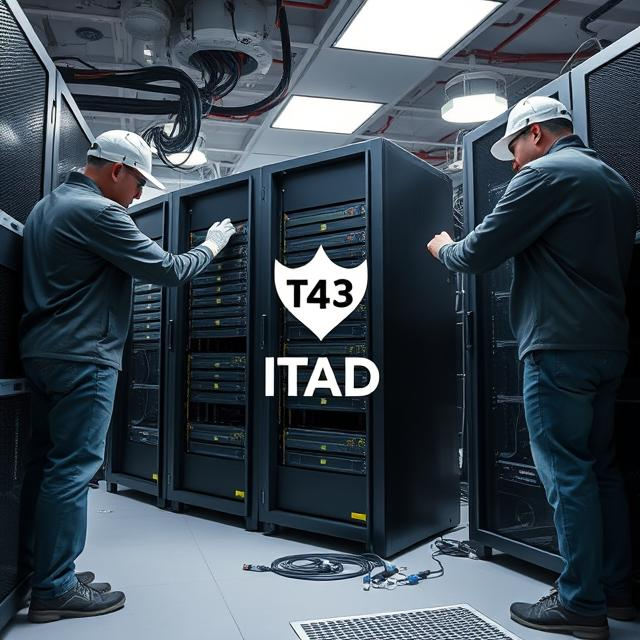Keeping Up with ITAD Standards

Recent Changes in ITAD Standards:
Enhanced Regulatory Compliance:
In 2023, the U.S. Securities and Exchange Commission (SEC) introduced new rules mandating public companies to report significant cybersecurity incidents within four business days. This underscores the importance of robust data protection measures during IT asset disposition.Stricter Data Privacy Regulations:
Globally, there is an increased emphasis on safeguarding consumer data. Compliance with data privacy regulations has become mandatory for businesses, necessitating secure data destruction practices in ITAD processes.While the US is behind the rest of the world in modernizing their ITAD compliance regulations, there are international countries that are aggressively updating their regulations.Emerging Industry Trends:
Growth of the ITAD Market:
The global ITAD market is projected to grow from USD 18.4 billion in 2024 to USD 26.6 billion by 2029, reflecting a compound annual growth rate (CAGR) of 7.6%. This growth is driven by the early replacement of IT assets to keep up with new technologies and the adoption of cloud-based solutions leading to data center consolidation. Adoption of Circular Economy Principles: Organizations are increasingly integrating circular economy principles into their IT asset management strategies. This involves refurbishing and remarketing used IT assets to extend their lifecycle, thereby reducing electronic waste and promoting environmental sustainability.Emphasis on Sustainability and Environmental Responsibility:
Globally, over 50 million metric tons of e-waste is generated annually, projected to reach 75 million by 2030. Often discarded in landfills, e-waste poses environmental hazards due to toxic materials like lead and mercury, which can contaminate soil and water, leading to serious health issues. E-waste accounts for 70% of toxic waste production. There is a growing focus on responsible disposal and management of electronic assets. Companies are prioritizing environmentally friendly ITAD practices to align with corporate social responsibility goals and comply with environmental regulations.Market Stabilization Post-Pandemic:
After a four-year period of fluctuation, the ITAD market is stabilizing, with resale prices returning to pre-2019 levels. This stabilization indicates a balanced supply and demand in the secondary IT equipment market. Staying informed about these evolving standards and trends is crucial for organizations to ensure compliance, optimize asset value recovery, and uphold environmental and data security responsibilities in their IT asset disposition strategies.Effect of GDPR Regulations on IT Asset Disposition (ITAD)
As mentioned earlier the European Union is at the forefront of pushing for greater protections in the disposition of IT assets. The General Data Protection Regulation (GDPR), enforced in 2018 by the European Union, has had a significant impact on IT Asset Disposition (ITAD). Companies handling IT assets must ensure strict compliance with data protection laws when disposing of hardware containing personal or sensitive data. Here are the major effects:
1. Stricter Data Erasure & Destruction Requirements
- Secure Data Wiping: GDPR mandates that organizations must ensure personal data is fully erased before IT assets are resold, recycled, or disposed of.
- Certified Data Destruction: Many companies now require certification of data erasure or destruction, using Blancco, Certus, or NIST 800-88-compliant software.
- Physical Destruction Standards: If wiping is not possible, GDPR-compliant ITAD vendors must shred, crush, or degauss drives to prevent any data recovery.
2. Accountability & Chain of Custody
- Detailed Documentation: Businesses must maintain a chain of custody records, documenting each IT asset’s lifecycle from collection to final disposition.
- Third-Party Audits: Companies using ITAD providers must verify that they comply with GDPR requirements and can provide audit trails to prove compliance.
3. Increased Legal & Financial Risks
- Severe Non-Compliance Penalties: GDPR violations can result in fines up to €20 million or 4% of global annual revenue (whichever is higher).
- Data Breach Liability: If a disposed asset containing sensitive personal data is found unsecured, the company is responsible, even if an ITAD vendor was used. So you must choose an ITAD company carefully making sure they have a reputation for full compliance.
4. ITAD Provider Certification Requirements
Organizations are increasingly selecting ITAD vendors that are:
- GDPR-Compliant and can prove secure disposal practices.
- ISO 27001 Certified (Information Security Management).
- R2 (Responsible Recycling) or e-Stewards Certified (Environmental & Data Security).
5. Changes in ITAD Business Models
- On-Site Data Destruction: More organizations prefer on-site data destruction before assets leave their premises to mitigate risks.
- Refurbishment with Secure Data Erasure: Instead of immediate disposal, companies refurbish and resell devices after GDPR-compliant wiping, maximizing ROI.
 Final Takeaway
Final Takeaway
GDPR has made data security in ITAD non-negotiable, increasing demand for certified disposal services, higher costs for compliance, and tighter regulatory oversight. Companies must choose ITAD vendors carefully to avoid financial penalties and reputational damage. Working with companies like TeleTraders that has been in business over 15 years can handle your disposition of old equipment whether it be selling, recycling and even donating.

